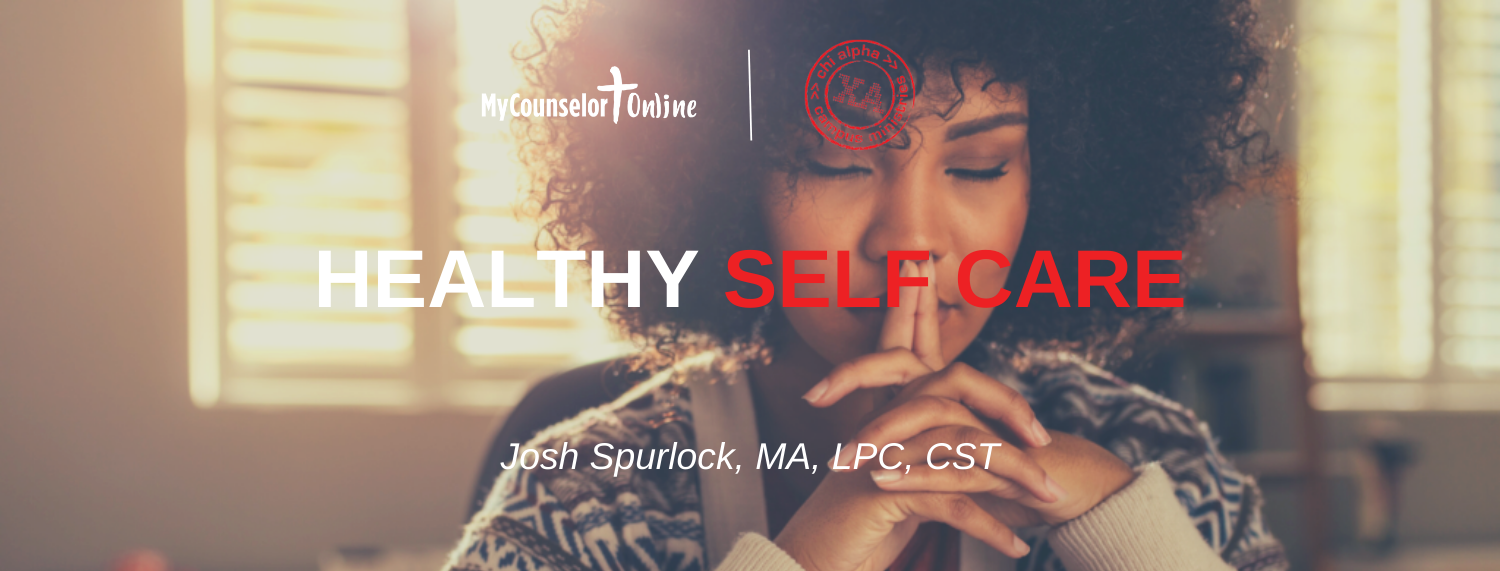Hey,
Self care is vitally important for success in discipleship and ministry, yet it is so often viewed as optional or unimportant.
Good self-care guards our heart from vulnerability to the predictable schemes of the enemy. It prevents burnout so we can enjoy longevity in productive ministry. Self-care enables us to lead from a place of strength and clarity. It gives us the ability to lead others to healthy self-care by example.
A Biblical Case for Healthy Self Care
With all it’s needs, weaknesses, fragilities, and limitations – God took on a human body. If we’re not careful we can buy into a kind of modern-day gnostic heresy, where we deny the value of the body and the reality of our need to care for it.
The idea of denying oneself is often twisted into a case against good self care. However, denying oneself does not mean living in denial about your humanity. That’s not what Jesus did and it’s not what He’s asking you to do. God made you a human being with physical and emotional needs. Sleep, nutrition, exercise, and emotional refreshment are not luxuries or self-indulgences to squeeze in if you have time.
Accepting your God given limits and actively choosing to receive God’s gifts of Sabbath rest, food, play, and solitude are acts of worship and obedience.
Self-care isn’t selfish or self-indulgent, it’s good stewardship of the resource of our body that enables us to make the best use of it and the time God has given us. It’s a spiritual discipline that acknowledges the realities of our finite bodies and worships God through taking care of the gift He has given us, so we can accomplish the good works He’s prepared in advance for us.
Loving Jesus first and taking up your cross daily doesn’t mean neglecting the needs God made your body with. It’s about crucifying your sinful attempts at being your own God. It may seem odd but neglecting self-care to push yourself beyond your God given limits can actually feed a sinful craving for self-sufficiency. So often our pride gets in the way, ultimately leaving us weak and vulnerable to the attacks of the enemy.
To dive deeper into this topic of self care, check out the full Healthy Self Care course.
The Effects of Sin
The root of everything wrong with our life and the world around us is sin. But it’s not always what you think. There are three different dynamics to sin that each effect every one of us in different ways.
- Personal Sin – There’s no doubt that personal sin leads to all sorts of suffering and struggle in our life. The antidote is humble repentance before God and accepting the forgiveness Jesus offers through his substitutional atonement for our sin on the cross.
- The Sin of Others – The impact we experience from the sins of others can have a tremendous effect on our thoughts, feelings, and relationships. Identifying and understanding these wounds opens the doors to healing. Forgiveness is important, but forgiving you for hitting me in the head with a board doesn’t make the lump on my head or the stars I’m seeing immediately go away. Sometimes healing requires more than just forgiveness.
- Sins Effect on Nature – When sin entered the world back in the garden of Eden it brought with it disease, decay, and ultimately death. It affects every aspect of creation, including our bodies. It’s why we are on a course to die from the moment we are birthed. It’s why some are born with defects, predispositions towards anger or addiction, or proneness to sickness or depression.
Our brain is an organ, just like any other organ in our body. Somehow, we tend to take the difficulties our brain organ faces more personally than that of our kidneys or liver. We interpret struggles of anxiety or depression as a personal failure. Perhaps that is because sometimes personal sin can contribute to these struggles as well. It would be a mistake though to see all emotional or mental health struggles through the lens of personal sin. Very often it has more to do with the frailties of our sin-affected human body than personal sin alone.
Thinking Holistically
The takeaway is this: When trying to understand “the root” of the struggles we or others face we need to look at the person holistically. If we are going to care for ourselves or those we lead well, it is necessary to consider not only the impact of personal sin, but also that of the sins of others and sins impact on the body.
Likewise, when approaching prevention or care for a struggle, we need to think holistically.
Continuum of Care is a term borrowed from the medical community. It describes an array of different levels of care spanning from preventive education and checkups to more intense interventions. The idea is that if a person can be educated on the value of brushing, flossing, and regular cleanings, then the pain, distraction, and expense of a root canal can, in many cases, be avoided.
When applied to discipleship and healthy leaders, the goal is to promote productive ministry and to prevent as much pain as is possible through good education, identifying potential struggles early, and connecting people quickly with resources at just the right level of support to avoid bigger problems down the road.
As a rule, prevention and early identification allows for faster, easier, and less expensive addressing of an issue. Which, in turn, means less loss of productivity, distraction from effective ministry, and greater enjoyment of life.
Cheering you on!
Josh Spurlock, MA, LPC, CST
Founder & Director of MyCounselor.Online
To dive deeper into this topic of self care, check out the full Healthy Self Care course.
